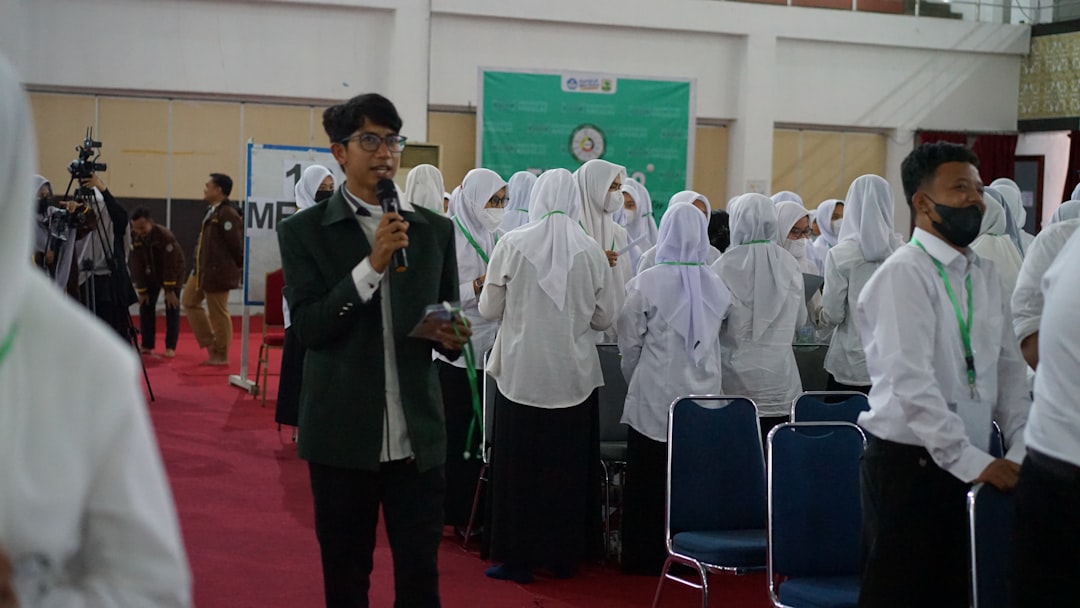As artificial intelligence continues to reshape the educational landscape, the Massachusetts Institute of Technology (MIT) has emerged as a leading force in exploring how AI tools like ChatGPT can revolutionize learning and instruction. The university’s various initiatives surrounding AI-driven platforms, particularly OpenAI’s ChatGPT, offer groundbreaking research, practical applications in the classroom, and hands-on opportunities for educators and students alike. Whether you’re a teacher seeking to enhance your pedagogy or a student looking to optimize your learning strategies, MIT’s ChatGPT initiatives provide a comprehensive framework to engage with this transformative technology in a meaningful way.
An Overview of MIT’s AI-Focused Educational Mission
MIT has long been a pioneer in science and technology, and their engagement with OpenAI’s ChatGPT reflects their commitment to leveraging AI to enhance human learning. In collaboration with research institutions and educational partners, MIT has initiated several programs aimed at studying the impact, limitations, and potentials of large language models (LLMs) in education. These initiatives are grounded in the MIT ethos of experimental learning, data-driven research, and ethical responsibility.
Key ChatGPT Study Initiatives at MIT
Over the last few years, MIT has launched a variety of study initiatives designed to assess how ChatGPT can be effectively incorporated into classrooms and learning environments. Below are some of the most important ongoing projects:
- MIT RAISE (Responsible AI for Social Empowerment and Education): This interdisciplinary initiative aims to promote the ethical and equitable integration of AI in education. MIT RAISE hosts student workshops, develops curriculum content, and explores how ChatGPT can support inclusive learning.
- MIT J-WEL (Abdul Latif Jameel World Education Lab): This program explores global learning innovation through partnerships and pilot programs, including studies focused on ChatGPT-assisted instruction and student engagement.
- MIT Teaching Systems Lab (TSL): TSL investigates the evolving role of educators in AI-enhanced classrooms. Through participatory design research, they provide open-access professional development modules on using ChatGPT for instructional design, formative assessment, and lesson planning.
How Students Are Benefiting
Students participating in MIT’s initiatives are discovering new ways to interact with course materials and acquire knowledge. ChatGPT is used to build personalized tutors, suggest study resources, and guide project-based learning. The AI’s ability to adapt responses based on prompts enables a form of dynamic interaction that supports multiple learning styles and paces.
Additionally, MIT’s AI Literacy project works to ensure students understand the limitations and ethical considerations of using tools like ChatGPT. They are taught to critically evaluate AI-generated responses, distinguish fact from hallucinations, and harness the tool responsibly under academic integrity guidelines.
Image not found in postmetaApplications for Educators
Educators at MIT and affiliated institutions are exploring several impactful ways to bring ChatGPT into the classroom, from automating administrative tasks to crafting individualized feedback.
Here are some specific use cases:
- Lesson Plan Development: Instructors use ChatGPT to brainstorm and organize syllabi, quiz questions, and interactive activities based on learning objectives.
- Scaffolding Assignments: Teachers support students by using ChatGPT to model writing or provide structured outlines for complex essays and reports.
- Real-Time Q&A Assistance: Educators employ ChatGPT-powered chatbots to provide students with rapid feedback during homework and exam preparation sessions.
- Assessment Evaluation: In experimental settings, ChatGPT has assisted with evaluating free-text answers and helping flag potential gaps in conceptual understanding.
Importantly, MIT encourages educators to view ChatGPT not as a replacement but as a pedagogical partner. Faculty members are advised to integrate AI with deliberate planning, oversight, and an emphasis on promoting critical thinking and originality.
Hands-On Opportunities
As part of its commitment to experiential learning, MIT offers several ways for students and educators to directly engage with ChatGPT studies. These include:
- Workshops and Hackathons: MIT regularly hosts events where participants can build AI-driven learning tools, test ChatGPT plug-ins, and develop classroom applications.
- Capstone Projects: Graduate students in education and computer science can opt for theses that explore ChatGPT’s effectiveness across subject areas like STEM, language arts, and economics.
- Pilot Program Classrooms: Selected MIT and partner classrooms integrate ChatGPT under controlled conditions, allowing researchers to gather insights into real-world usage and limitations.

Ethical Considerations and Bias Mitigation
One of the most serious aspects of MIT’s ChatGPT initiatives is the sustained focus on ethics. The university recognizes the risks of over-reliance on AI, data biases, and misinformation. Hence, MIT researchers are investigating how biases manifest in ChatGPT’s outputs and developing interventions to reduce them. This includes:
- Auditing prompt-data pairs for implicit stereotypes
- Designing transparency tools to track how ChatGPT arrives at particular conclusions
- Training educators and students on the difference between syntactic fluency and conceptual accuracy
Additionally, MIT cultivates a respectful digital environment, encouraging open discussions about accountability, authorship, and AI’s place in scholarly work. Students are guided in how to cite AI-generated assistance transparently and within academic guidelines.
Collaborations and Research Outputs
MIT’s role in fostering global dialogue around AI in education cannot be overstated. As part of cross-institutional efforts, MIT collaborates with Harvard, Stanford, and international universities to share findings, develop unified best practices, and refine ChatGPT user cases.
Many of the studies and materials produced are made freely available through open-source platforms, including published papers, datasets, and teaching tools. Researchers are encouraged to contribute to an evolving body of work under Creative Commons licensing to promote adaptation and inclusivity worldwide.
Preparing for the Future
Looking forward, MIT continues to explore more nuanced uses for ChatGPT, such as emotional intelligence tutoring, multilingual instruction, and adaptive learning pathways. The goal is to harness ChatGPT not just as a utilitarian tool but as a lens through which new educational paradigms can be imagined.
Future updates from MIT’s research hubs include:
- Evaluating long-term learning outcomes from ChatGPT-aided instruction
- Integrating AI literacy into K–12 school systems in collaboration with public educators
- Developing plug-ins that let ChatGPT interface with learning management systems like Canvas and Moodle
How to Get Involved
If you’re an educator or student interested in participating in MIT’s ChatGPT initiatives, there are several entry points available:
- Register for online courses and webinars through MIT RAISE
- Access teaching kits and lesson plans via the Teaching Systems Lab
- Apply to intern or collaborate on projects through the Department of Comparative Media Studies/Writing
MIT embraces inclusivity, and many of these resources are available to educators outside the university system. With ChatGPT becoming an integral part of modern pedagogy, engaging with MIT’s trusted research frameworks ensures that your adoption of AI is both progressive and responsible.
Conclusion
The integration of ChatGPT into education is more than just a technological trend—it’s a fundamental shift in how we approach human knowledge, learning, and mentorship. MIT’s comprehensive and ethically grounded initiatives are paving the way for a new generation of learners and teachers to unlock the full potential of AI-supported education. Whether you’re looking to improve your classroom outcomes or gain advanced understanding of AI’s capabilities, the MIT ChatGPT study initiatives offer a proven and credible starting point.
 logo
logo



